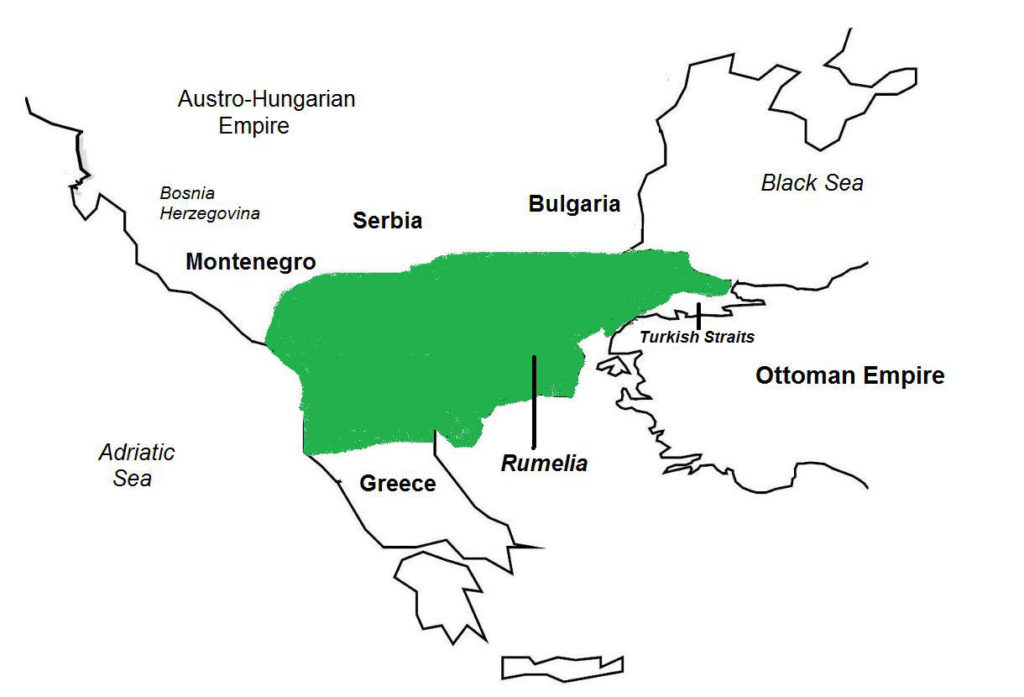On May 30, 1913, Albania gained its independence from the Ottoman Empire with the signing of the Treaty of London that ended the First Balkan War (October 1912-May 1913). Albania’s sovereignty was furthered in August 1913 in the Treaty of Bucharest that delineated the boundaries of the new state, but left 30-40% of ethnic Albanians outside its borders.

Background The First Balkan War was fought between the Ottoman Empire and an alliance of the Balkan League, a military alliance among Serbia, Bulgaria, Montenegro, and Greece, for control of Rumelia, a broad swathe of Ottoman territory in the Balkans. The Treaty of London, signed on May 30, 1913, officially ended the war. The European powers (Britain, France, Germany, Austria-Hungary, Italy, and Russia) applied strong pressure, forcing the warring sides to accept the terms of the agreement. The treaty’s most important provision forced the Ottoman Empire to cede to the Balkan League all European territory west of the Enos-Midia Line.
(Taken from First Balkan War – Wars of the 20th Century –Vol. 3)
The Ottoman government complied and withdrew its forces from the Balkans, thus ending nearly five centuries of Ottoman rule in practically all of Europe. After further deliberations and under strong insistence of Austria-Hungary and Italy, on July 29, 1913, the European powers agreed to recognize the independence of Albania, where local Albanian nationalists had previously (on November 28, 1912) declared the province’s secession from the Ottoman Empire. As a result, Serbia, Greece, and Montenegro withdrew their forces from occupied areas in Albania, again after being strong-armed diplomatically by the European powers.
The partitioning of other Balkan territories was left to the discretion of the Balkan League. Nevertheless, the unexpected birth of the Albanian state disrupted the Serbian-Bulgarian pre-war secret partition agreement of the Balkan region. In particular, Bulgaria was disappointed at its less than expected territorial gains in the war, more so in relation to Greece whose forces had performed exceedingly (and surprisingly) well, and had gained a larger share of the conquered territories in southern Macedonia that otherwise would have been won by Bulgaria. For this reason, Bulgaria put pressure on Serbia and Greece to turn over some of the conquered territories, which the latter two refused.
The stage thus was set for the resumption of hostilities, the Second Balkan War.
